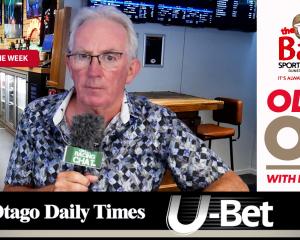The 50-year-old has accepted the verdict handed down by the Sports Tribunal of New Zealand on Thursday and says his case highlights how careful athletes need to be when taking prescribed medicine.
"At the end of the day, they are the rules and if I want to do sport, I have to follow them,'' Spessot said when asked if he accepted the decision.
"This was a club level event, so it applies to everybody, pretty much. I've spoken to a couple of guys who play senior rugby and said, ‘Yeah, mate, you come under the banner'.
"They can show up at your games and ‘bullshit' they are saying. There are bound to be a few more like me before people get it.''
Spessot, who has had asthma since childhood, tested positive for prednisone and terbutaline, which he took to treat his asthma two days before competing in the Twizel to Timaru cycling race on September 19.
He had been prescribed the prednisone previously and self-medicated when his asthma worsened on his return from a trip to Australia.
Both substances are banned by the World Anti-Doping Agency but Spessot was eligible to apply for a retroactive therapeutic use exemption following the positive test.
Drug Free Sport New Zealand's (DFSNZ) Therapeutic Use Exemption Committee declined Spessot's application, citing "insufficient clinical details for a satisfactory diagnosis [of asthma] to be established, and further, no clinical reasoning was offered to support the use of two prohibited substances''.
Spessot decided against appealing the decision.
While the tribunal stated Spessot's actions "were casual and unthinking'' and "not consistent with the clear obligations on every athlete ... they were taken legitimately for genuine medical reasons''.
Spessot did not set out to cheat but DFSNZ chief executive Graeme Steel said the ban should serve as a warning to other athletes.
"The two-year suspension for Mr Spessot highlights that many commonly prescribed medications are on the prohibited list,'' Steel said in a press release.
"It's the athletes' responsibility to understand what is allowed and what is not.
"Athletes who compete seriously need to be aware at all stages of their careers that the anti-doping rules still apply to them, whether they're teenagers or masters level athletes.''
Spessot openly admitted he could have done more to keep himself informed. However, he questioned whether the regulations were easy to understand or widely known.
"I find it a little hard to swallow that I'm suppose to understand the rules when there are all those learned men sitting there discussing definitions to come up with the report ... yet a forestry worker with no education is suppose to be able to understand it when they have difficulty?''
Spessot is the second Otago athlete to be sanctioned by the tribunal this month.
Football player Kelsey Kennard was banned from sport for six months after testing positive for probenecid, which she had been given by a Dunedin doctor to treat a cellulitis infection.












